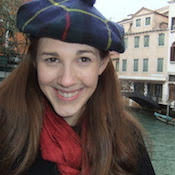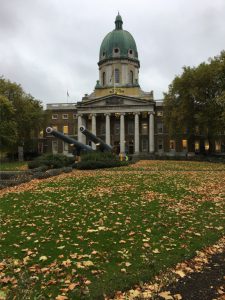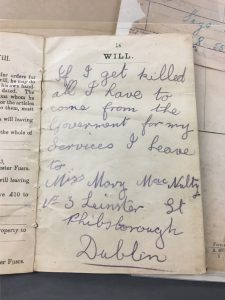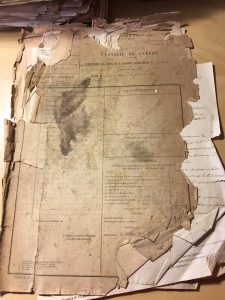Halloween has changed and evolved throughout the centuries. However, the spookiness and horror of the annual holiday remains the same. Millions of people spend time and money to experience fear in haunted houses and movie theatres during the Halloween season. After a moment of horror, people have the luxury of returning safely to their homes knowing that whatever they just witnessed was pure fiction. Unfortunately, there was a group of people who lived a Halloween horror story every day for many years experiencing fear, trauma and pain that go beyond a brief fright in a haunted house. A PhD student at USC dedicates her time and research to understand the fear and traumas World War I soldiers overseas.

Jenna Ross
Jenna Ross is a fifth year PhD student in the history department of USC Dornsife. Her research is centered on the experiences of fear in the trenches of WWI amongst soldiers. Prior to studying at USC, Ross lived in Italy for three years. During that time, she traveled throughout Europe visiting small towns and villages. Her curiosity about WWI was sparked when she noticed the frequency of WWI memorials in every town she visited.
“It was something uncanny about the first World War and I wanted to explore it,” Ross said.
During the beginning stages of her research, Ross came across a 1917 article by a psychiatrist who wrote about the fear of soldiers. Contrary to popular publications during the 1910’s, the psychiatrist explained how fear was normal, necessary and beneficial. This article was the catalyst to Ross’ intellectual pursuit.
Ross’ research is transnational. She travels to England, France and Germany to visit

The Imperial War Museum, London.
various archives such as The Imperial War Museum in London. To prevent misinformation, Ross solely reviews diaries, letters and court martial records from 1914 to 1918.
“Second hand information takes away the initial feelings and information,” Ross said. “I [want] to get as close to the actual source as I can.”
Many soldiers wrote every day during the entire war, revealing the dark things that haunted them on a daily basis.
“I’ve spent thousands and thousands of pages with these men,” explained Ross. “I feel like I know them just like I know my own friends.”
The majority of the battles during WWI were fought in complete darkness, either at dusk or dawn. The only source of light were large fireworks called star-shells that gave temporary brightness on the battlefield. These men heavily relied on their five senses, training and fellow soldiers for survival.

A will for a soldier written in his Soldier’s Small Book.
During her research, Ross encountered a major who vividly reflected on a battle in a letter. This major and his men heard a sudden crash, which followed with rapid fire of machine guns. He instructed a line of his men to look over the top of the hill while the rest of them prepared and positioned themselves for battle. Soon after, screaming was heard from the hill. In the bursts of light from the star-shells, the major saw that his line of men running back towards them. What they saw caused such a fright the major had no choice but to retreat to a safer place in the darkness. The source of fear was never identified.
“You get [stories] like that a lot where they’re eerie and haunting,” Ross said.
This Halloween night, there will be tons of objects and people portrayed in costume. Many people choose the patriotic route and dress as the soldiers who protect and serve our country. However, where do you draw the line between honor and mockery? The average citizen who has never stepped foot on a battlefield cannot fathom the fear and trauma. Ross has learned through her research that many men who have served in wars did not have safe spaces to discuss the things that they experienced in fear of

A muddy French court martial for desertion in the presence of the enemy.
being seen as unpatriotic. People dressed as soldiers for Halloween are not aware of the severity of battlefield traumas and this lack of knowledge creates a level of insensitivity.
“I don’t think dressing as a soldier is a complement especially since it’s often sexualized,” Ross said. “The [mindset] is like ‘Oh, women like soldiers. I’m going to dress as a soldier!’ Well do you want to have all the mental trauma that’s associated with it?”
